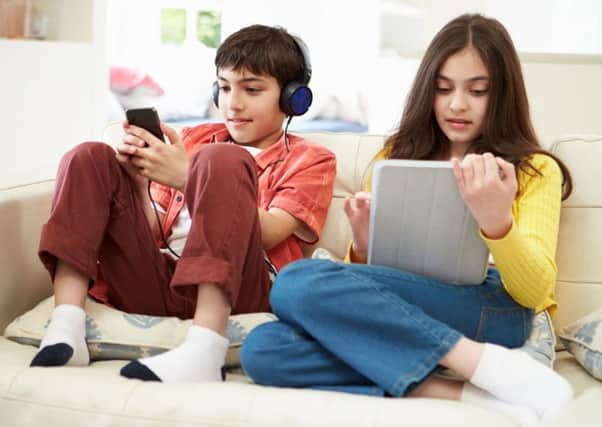Children face '˜social media risks emotionally' says commissioner


Anne Longfield, of Otley, West Yorkshire, said she is worried many children transitioning into Year Seven are “ill-equipped” to be able to “cope with the sudden demands of social media” as their friendship circles expand.
In a report published by the commissioner today, called Life in Likes, it states that children become increasingly anxious about their online image as they head into their teens.
Advertisement
Hide AdAdvertisement
Hide AdThe study, involving eight groups with 32 children aged eight to 12, found the most popular social media accounts are Snapchat, Instagram, Musical.ly and WhatsApp but revealed two sides to their use.
It found that while eight to 10-year-olds use social media to play games, be creative and discover new things about the world, the focus shifts onto social interactions and image as children begin secondary school.
This move is centred around a social pressure to be constantly contactable and connected, with children describing this as an important expectation of their friendships, and fallouts over not being responsive enough, the report said.
Some Year Seven children described how receiving notifications from across the social media platforms, especially if there were a number of them, was distracting, time consuming and stressful to manage.
Advertisement
Hide AdAdvertisement
Hide Ad“While social media clearly provides some great benefits to children, it is also exposing them to significant risks emotionally, particularly as they approach Year Seven,” the commissioner said. “I am worried that many children are starting secondary school ill-equipped to cope with the sudden demands of social media as their world expands.”
With many social media platforms having an over-13 age limit, the commissioner said it is clear companies are “still not doing enough” to stop younger children using them.
The report noted how children demonstrated a strong understanding of the importance of being themselves online, but how these attitudes did not always translate to their actual behaviour.
Older children in the groups often talked about wanting to look like those they see online, and an increasing anxiety over whether their posts would be liked.
Advertisement
Hide AdAdvertisement
Hide AdWith this as something that became more and more important, the report highlighted how children in Year Seven would often share an image or video over text message or WhatsApp first for prior approval.
And that some in this age group said their friends would send l&c - meaning like and comment - to a group chat in a bid to encourage them to do so on their post.
Across all ages the study also highlighted how children have a solid grasp of what is worth being shared on social media and the sort of response they would get.
Calling on schools and parents to prepare children for this change in social media use towards the end of primary school, the commissioner also warned how if action is not taken, a generation could grow up “chasing likes”.
Advertisement
Hide AdAdvertisement
Hide AdMs Longfield also called for digital literacy and online resilience lessons for Year Six and Year Seven students, so they learn about the emotional side of social media. A government spokesman said: “We expect social media firms to have robust processes in place around the use of their sites by children.”